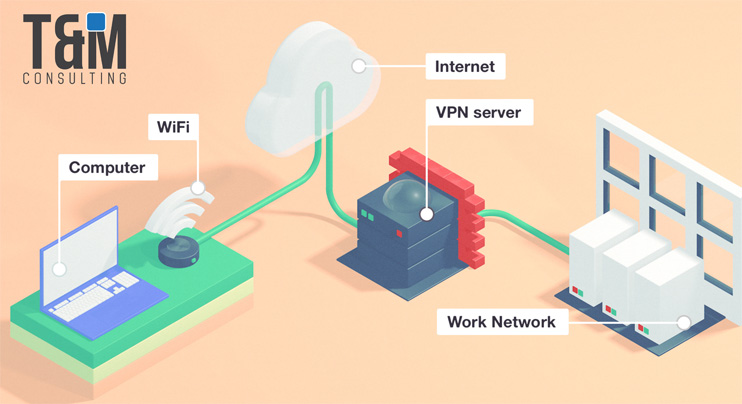VPN, means Virtual Private Network. Is a type of network in which an extension of a private network is created for access from the Internet. Such as the local network of home or office but over the Internet.
With a VPN, we can establish contact with machines hosted on our local or remote networks in a secure way. This thanks to the connection established between both machines travels fully encrypted.
When connecting to a VPN, we’ll do so using encrypted data at all times. From the moment you enter until you leave the VPN, through different protocols that protect the information.

When trying to visit an encapsulate page our system will do is create the request and send it over the Internet to our VPN provider. This will de-encapsulate them following their usual course. They will exit their network router and, the packet will be forwarded.
One that we know that a VPN connection is like creating a secure tunnel between our computer connected to the Internet and our -or other- private network, the practical utilities that we can find to this connection are clear.
We can summarize the practical cases in the following: Access a network of work or home while you are traveling: In this way, even being away from the office we can access the shared resources of the company, such as file servers, printers , private corporate applications, intranet, etc., we can also connect to our home computers to access their documents, music, files, etc. In short, we can connect to all the devices that we can connect when we are sitting in our office or at home.
Advantages of using a VPN.
– Integrity, confidentiality and data security.
– VPNs reduce costs and are easy to use.
– Facilitates communication between two users in distant places.

